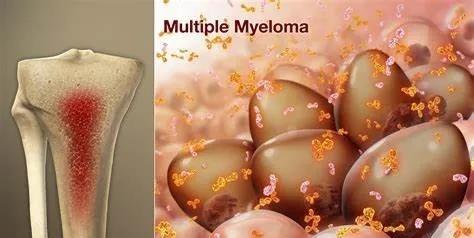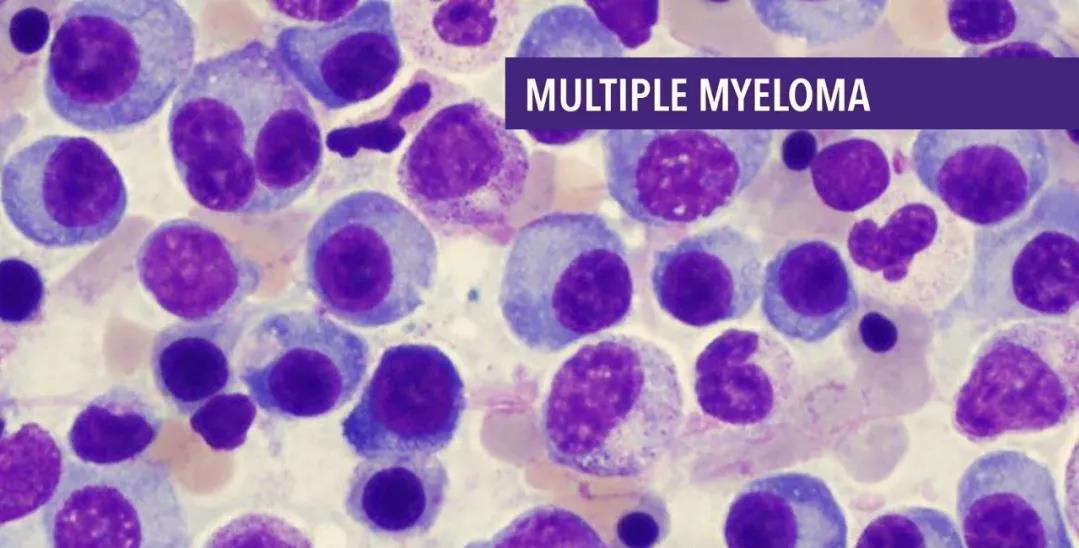On April 4, 2024,Abecma® (Idecabtagene Vicleucel) FDA Approval for the Treatment of Relapsed or Refractory Multiple Myeloma
On April 4, 2024,Abecma® (Idecabtagene Vicleucel) FDA Approval for the Treatment of Relapsed or Refractory Multiple Myeloma
On April 4th, 2024, Abecma® (idecabtagene vicleucel) received approval from the U.S. Food and Drug Administration (FDA) for the treatment of adult patients with relapsed or refractory multiple myeloma.
Introduction to Multiple Myeloma
Multiple myeloma (MM) is a malignant proliferative disease of plasma cells, characterized by the unlimited proliferation of plasma cells in the bone marrow, resembling tumor cells, and most cases are accompanied by the secretion of monoclonal immunoglobulins, ultimately leading to organ or tissue damage.
Multiple myeloma predominantly affects the elderly, with a significant gender difference, as the incidence rate is higher in men than in women. China currently lacks precise epidemiological data on MM, but previous data suggests an incidence rate of approximately 1.0 per 100,000, lower than that of Western countries, but with an increasing trend. There is a certain genetic association with the development of multiple myeloma, and direct relatives of patients have a higher risk of developing the disease compared to the general population.
In China, the incidence rate of multiple myeloma is approximately 1 per 100,000, lower than the rate of approximately 4 per 100,000 in Western industrialized countries. The disease primarily affects individuals between the ages of 50 and 60, and it is relatively rare in those under 40 years old. The male-to-female ratio is 3:2.
Multiple myeloma is a malignant proliferative disease of plasma cells, characterized by the abnormal proliferation of clonal plasma cells in the bone marrow and the secretion of monoclonal immunoglobulins or their fragments (M protein), leading to damage to related organs or tissues.
Common clinical manifestations include bone pain, anemia, renal impairment, infections, and hypercalcemia. The exact cause of multiple myeloma is still unclear, but genetic, environmental factors, chemical exposure, and viral infections may all contribute to the development of the disease.

Idecabtagene Vicleucel Approved for the Treatment of Multiple Myeloma
Bristol Myers Squibb recently announced that the U.S. FDA has approved the BCMA-targeted CAR-T cell therapy, Abecma (idecabtagene vicleucel), for the treatment of adult patients with relapsed or refractory multiple myeloma who have received at least two prior therapies, including an immunomodulatory drug (IMiD), a proteasome inhibitor (PI), and an anti-CD38 monoclonal antibody. This approval expands the indication for Abecma, allowing it to treat patients with earlier stages of multiple myeloma.

This approval is based on the positive results from the Phase 3 KarMMa-3 clinical trial. In this study, 254 patients were randomly assigned to receive Abecma treatment, while 132 patients were randomly assigned to receive different types of standard therapies based on their most recent treatment regimen and the investigator’s judgment.
At a median follow-up of 15.9 months, Abecma tripled the median progression-free survival (PFS) compared to standard regimens, reaching 13.3 months (95% CI: 11.8-16.1) versus 4.4 months (95% CI: 3.4-5.9) in the active control group, with a statistically significant difference (HR: 0.49; 95% CI: 0.38-0.64; p<0.0001). This indicates that the use of Abecma reduced the risk of disease progression or death by 51%.
Abecma also demonstrated a significant improvement in the overall response rate (p<0.0001), with the majority (71%) of patients receiving Abecma achieving a response, and 39% achieving a complete response or stringent complete response. In contrast, less than half (42%) of patients receiving standard regimens achieved a response, and only 5% experienced a complete response or stringent complete response. The median duration of response for Abecma treatment was 14.8 months (95% CI: 12.0-18.6).

Introduction to Idecabtagene Vicleucel
Abecma is a CAR-T cell therapy that can recognize and bind to BCMA expressed on the surface of multiple myeloma cells, leading to the proliferation of CAR-T cells, cytokine secretion, and subsequent killing of BCMA-expressing cells.
The KarMMa-3 trial was a pivotal Phase 3 open-label, global, randomized, controlled trial designed to evaluate Abecma compared to standard regimens in patients with relapsed and refractory multiple myeloma who had received 2-4 prior lines of therapy, including an immunomodulatory agent, a proteasome inhibitor, and an anti-CD38 antibody, and were refractory to their last line of therapy. Ninety-four percent of patients were refractory to prior daratumumab treatment. KarMMa-3 is the only Phase 3 trial evaluating a CAR-T cell therapy in a patient population consisting entirely of triple-class exposed relapsed and refractory multiple myeloma patients.
